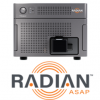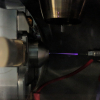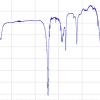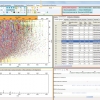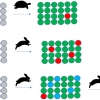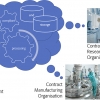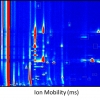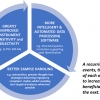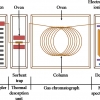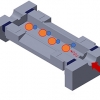Articles
How to save on three universal chemical manufacturing workflows
This sponsored article describes the RADIAN ASAP, a dedicated direct analysis system, which uses Atmospheric Pressure Solids Analysis Probe (ASAP) technology to analyze solids, liquids and solutions.
“GlowFlow”, a step towards a unified ionisation source for mass spectrometry?
The authors have developed the “GlowFlow” mass spectrometry source design based on an Argon flowing glow-discharge that can be retrofitted to existing instrumentation and ionise compounds at atmospheric pressure which are less amenable to ESI.
FAIR practice
Following our articles on the FAIR initiative, we now look at some examples of the FAIRification of data handling, collection and archiving.
FAIR enough?
The Tony Davies Column offers a challenge to us all with another contribution on FAIR data, which should be Findable, Available, Interoperable and Readable. It is clearly the way we should all be going, everybody from manufacturers and software developers, through researchers to publishers needs to work together.
Events, events! …a perspective from the British Mass Spectrometry Society
Mark McDowall, Meetings Secretary of The British Mass Spectrometry Societ,y explains how the society coped with the restrictions of COVID and what his views are for the future of events.
analytica virtual 2020: a new platform in times of contact and travel restrictions
How did a major trade show organiser cope with the disruption of COVID-19? Susanne Grödl, Exhibition Director of analytica for Messe München, gives her experience.
Software innovations in four-dimensional mass spectrometric data analysis
Over the last two decades, significant advances in technology and new methodologies have made proteomics an extremely powerful tool for protein scientists, biologists and clinical researchers. Increase in the data produced also creates new challenges for bioinformatics software development.
When to automate spectroscopic data processing
Whilst automation is not a panacea, it can improve the accuracy of manual tasks as well as freeing up our time for more challenging tasks. The authors explore some particular examples they have come across and lessons learned from them.
COVID-19 #2: Compliant data processing from your home office
Tony Davies and Mohan Cashyap discuss this topic with help from a number of industry experts. Whilst there are undoubted computing and networking issues for regulated industries in allowing working from home as if the user was in the lab, they are not insurmountable.
Letter to the Editor: Importance of citing full details of spectral library and search program
David is concerned about the “Importance of citing full details of spectral library and search program” in papers. As he points out, “even when the same mass spectrum is searched against two different versions of the NIST/EPA/NIH EI Mass Spectral Library using the same search program, two different compounds can be found as the first Hit”. There are many possible reasons for this, but the version of the spectral library used and the particular search program used make a difference, and should be included in all references.
COVID-19: Lock-down and up-skill
With a significant proportion of our regular readership probably under home lock-down, we were wondering if we could help you at this difficult time by pointing out some useful online resources. So, when we finally come out of this pandemic, you could do so better skilled and more up-to-date than when we went in to it.
Planning for EuroAnalysis 2021
Tony and Lutgarde Buydens give us an update on the planning for the major EuroAnalysis 2021 conference, which is being held in Nijmegen, the Netherlands, at the end of August 2021. At this stage, they are keen to gather suggestions from readers on topics they would like to see covered. Groups are also invited to consider hosting their own event under the EuroAnalysis 2021 banner.
Pre-processing spectroscopic data: for good or ill?
The authors offer many useful points to consider when using pre-processing techniques.
New mass spectrometry method for characterisation of the most challenging complex mixtures
The authors have developed a clever solution to be able to provide constant resolution, high-resolution mass spectrometry data across the full spectrum. In doing so, they have assigned 244,779 unique elemental compositions: a record.
Pragmatic path between targeted and non-targeted ultra-trace analysis
A recent conference on Extractables and Leachables in Hamburg not only allowed two ex-colleagues to meet after many years, but also provided information on developments and trends in the regulatory environment. Not only are ever lower levels of detection required, but also analytical requirements are being placed on companies further back in the materials’ supply chain that have not had to make such considerations before.
Are omics the death of Good Sampling Practice?
Tony Davies and Roy Goodacre raise some issues around the reliance just on vast quantities of data collection in omics experiments. As they put it, should we “just keep throwing the mass spectra, nuclear magnetic resonance data sets and our ion mobility fingerprints onto a big pile for the statisticians to fight over?”.
Can you smell smoke?
Hafiz Abdul Azeem recently presented some interesting results from his work on atmospheric aerosols. Following their capture, he combined the optimisation of the extraction process with chromatographic separation and mass spectroscopic detection to identify various sources of pollution through their emission marker fingerprints.1 One spin-off of this work has been the use of a specific biomarker from cellulose combustion to potentially warn of low-heat smouldering in, for example, agricultural materials in bulk storage.
A practical guide to sample preparation for liquid chromatography-tandem mass spectrometry in clinical research and toxicology
This article provides a valuable summary of the choice of sample clean-up methods available for the quantification of small molecules in body fluids. What are the key factors? Judy outlines the principal processing methods and provides practical advice on protocol development using quantification of serum testosterone in serum samples as the model compound.
Infrared ion spectroscopy: a bioanalytical tool for the identification of unknown small molecules
Nick Polfer gives an excellent introduction to the recent technique of infrared ion spectroscopy. Ions held in the ion trap of a mass spectrometer can be probed with a tuneable light source, and its photodissociation studied as a function of the photon frequency. Nick believes that the technique will make an impact in small molecule analysis, such as metabolites, drugs and classes of molecules containing many isomers.
What developments do you need to work more efficiently?
Tony Davies continues his quest to find out what you all need to work more efficiently. You will remember that in the last issue, Tony introduced his survey to discover what developments were needed in spectroscopy by readers. Some of the initial responses are explored, and Tony finds that he has opened a “can of worms”.

